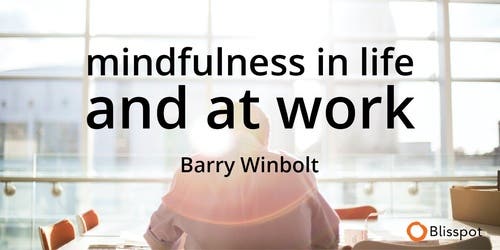When it comes to managing our moods we often think that we have little control over them. Moods are often the result of ‘distorted thinking” These are the false judgments and assumptions (E.g. “She did that deliberately so she must really hate me”; “He never picks up the ‘phone so he is avoiding me”) that can both create a mood in the first place, and keep us stuck with it.
But, you can change the way you feel if you know how to go about it. The problem is that we are not generally told this, nor shown how to do it. Feelings rule, and if you aren’t able to control them, at least a little, they’ll control you.
People often say to me that ‘this or ‘that’ things upset them; that they can’t possibly be happy until someone else changes; or that their problems today stem from something that happened much earlier in life.
All these things may be a little bit true and of course, experience contributes to our beliefs and attitudes, but experience doesn’t have to define us nor prod our emotions if we’d rather it didn’t.
Moods and feelings
Attributing our moods, feelings or even our (lack of) self-esteem to the judgments of others or events outside ourselves is a handy delusion that is useful as a buffer. It protects us for a time and satisfies the common need to blame when things go wrong. But it is no solution to feeling unhappy or upset, and the more we do it the more our feelings seem to control us.
You can change this. The method is quite simple though it requires practice. I’ve also found, that when people are shown how to change a feeling they are often unwilling to do it. They’d rather hang on to the bad feeling, it seems than take a step towards changing.
How to do it…
As Shakespeare said:
“There is nothing either good or bad, but thinking makes it so.” (Hamlet, Scene 2).
An important first step is to realize that it is thoughts and attitudes that stoke our feelings, not external events. You can learn to change the way you think you can learn to change your feelings and a lot more besides.
Here’s how. Think of an event that bugs you. For example, you let someone out in traffic and they don’t thank you, or you ask someone to do something for you, and they fail to do it. It doesn’t matter what you choose – examples are all around us – it can be anything that triggers a negative response in you; a feeling you don’t like.
Now think of how you explain the event to yourself: “They obviously didn’t thank me because they’re rude”; “Time and again I ask them and they let me down. They just don’t care/respect me/think I’m important.” etc. You see, it is the interpretation of events that causes the upset, not the event itself.
Learning to challenge the interpretation, replacing it with less emotionally arousing ideas, and choosing an explanation that doesn’t trigger negativity (E.g. “They are probably just busy and distracted”; “Maybe they are having a bad day”), can set you free from the shackles of your own mood. Distract yourself or get engaged in something else. Better still, break the mind’s automatic habit of interpreting events at all. This takes practice, but it’s the ideal spot to aim for.
It’s not personal
Most things are not intended to upset or hurt us, but we manage to do it all by ourselves. Understanding that most things in life are not personal is a positive step towards mood management. If you are brave enough, it is also worth asking yourself how an overpowering mood is supposed to help you (why else let it happen), and how you’d feel to be free of it.
We are all different and we are not all upset by the same things. Each of us fashions our own individual values, beliefs, and attitudes, and it is these that color our interpretation of the things that happen to us. One person will get angry because someone doesn’t thank them, another will forget it and move on. One puts it down to rudeness, another to absent-mindedness or some other explanation that doesn’t upset them. As David Burns says: “The way you feel results entirely from the way you think about (a situation)”.
If something upsets you, step back and generate some alternative explanations. This is where the practice comes in. This is a choice, you don’t have to do it. But once you know it, can you really hold others responsible for how you feel?
To learn more about your mood see: Mindfulness in Life and at Work








